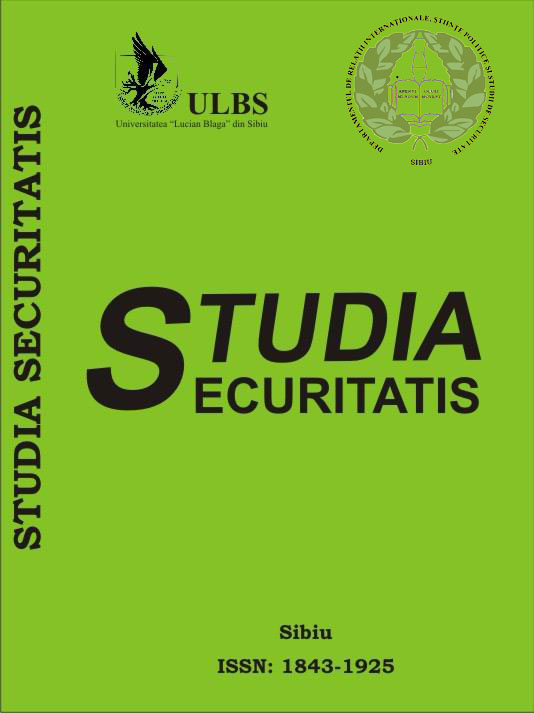THE ISSUE OF TERRORISM IN THE INTERNATIONAL
HUMANITARIAN LAW
THE ISSUE OF TERRORISM IN THE INTERNATIONAL
HUMANITARIAN LAW
Author(s): Radu TabaraSubject(s): Politics / Political Sciences
Published by: Editura Universitatii LUCIAN BLAGA din Sibiu
Keywords: Terrorism; crimes; propaganda; jihad
Summary/Abstract: Terrorism has always been present in the history of humanity in variousforms (most often assassinations), but only recently it grew in importanceand visibility. The 9/11 events in 2001 set new limits in the activity of theterrorist groups, but also in the possibilities to tackle them and fight back.In the past years, the terrorist groups have relinquished any type ofhumanitarian interdiction, purposely committing attacks that resulted in alarge number of civilian victims.Until now, it has been impossible to issue an unanimously accepteddefinition of terrorism because of the complexity of the phenomenon and thedivergent stances and interests of the authors. The absence of such adefinition creates problems in the judicial and legal approach of thephenomenon.Although we refer to the fight against terrorism as “war on terrorism”,there is a major difference from a classical conflict, in which the partieshave the statute of belligerents. The military operations against terrorismare not considered conventional armed conflicts.The peril state induced by terrorism has determined numerous countries todepart from the principles of human rights by limiting some of them whileimplementing measures to prevent and combat terrorism. The adoption ofcertain rules, many times restrictive, has had as secondary major effect thelimitation and violation of the fundamental rights and liberties of thecitizens. The international treaties allow the restriction of some rights underwell-determined circumstances, but it is not recommended to use themsystematically and extensively. Furthermore, the legislation adopted bynumerous states to fight terrorism led to the significant increase of thesurveillance and investigative capabilities of the institutions authorized tofight terrorism, in detriment of the civil liberties.The UN has constantly declared that the fight against terrorism should takeinto consideration the respect of human rights.
Journal: Studia Securitatis
- Issue Year: 1/2015
- Issue No: 3
- Page Range: 49-54
- Page Count: 6
- Language: English
- Content File-PDF

